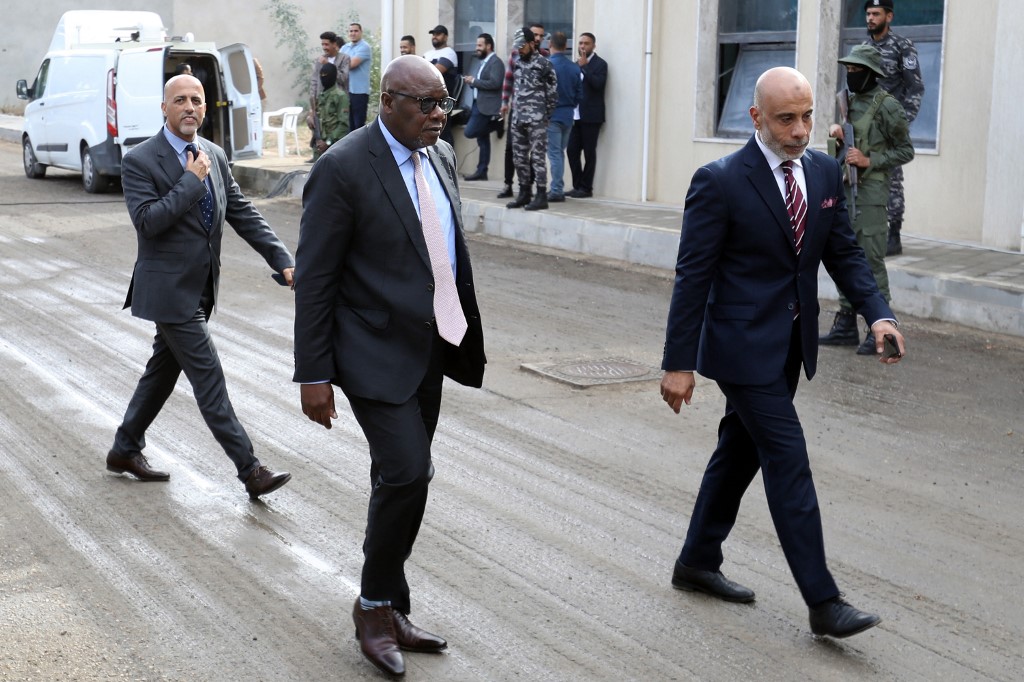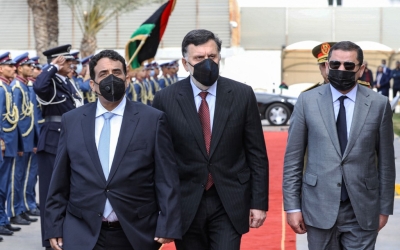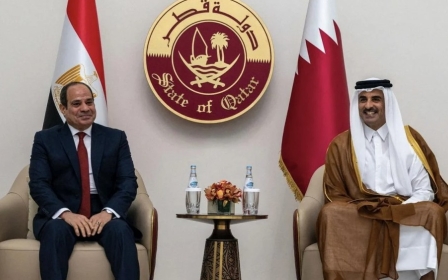Libya elections: Has the UN lost the plot?

When it comes to Libya, the United Nations appears to have gone insane - at least according to the cliched definition attributed to Einstein. With Libya dangerously devolving into the type of discord that already produced one regionally destabilising conflict, UN special representative Abdoulaye Bathily last month announced his eagerly anticipated new plan. The problem is, it looks uncomfortably similar to the organisation’s previous plan that failed dismally in 2021.
While the UN considers repeating this plan in a more difficult environment to be a sound idea, other observers are significantly more anxious. After all, should the plan fail, Libya will relapse into the condition that recently helped to drive Italy’s migration crisis, destabilise the Sahel, ignite the eastern Mediterranean, allow Russia a military hub in the central Mediterranean, and much more.
Bathily’s plan to take Libya to elections this year was more than six months in the making. Despite Libya teetering on the edge of crisis and renewed conflict when he was appointed in September, the Senegalese academic and diplomat was adamant about being methodical. He had good cause to be careful, given that many consider this Libya’s last chance to get to elections.
Libya's already precarious path to elections just got a lot shakier, but ... there is likely only one more chance to get it right
So, the new special representative spent months in “listening mode”. He toured Libya’s various political authorities, warlords, sterilised forums of pre-approved civil-society organisations, and countries involved in Libya to hear their proposals. Then, when the Libyan and diplomatic worlds could no longer take the suspense, he announced his plan to the Security Council on 27 February.
Bathily has well-diagnosed the underlying problems of Libya’s complex conflict. He has recognised Libyans’ frustration with their intransigent political class, the duplicity of that class, and the fact that elections require a sense of credibility, inclusivity and security to succeed. But his solution - creating a high-level steering panel to guide the country towards elections - seems mismatched to his diagnosis.
New MEE newsletter: Jerusalem Dispatch
Sign up to get the latest insights and analysis on Israel-Palestine, alongside Turkey Unpacked and other MEE newsletters
This panel convenes a wide range of Libyan characters, from civil society, to corrupt politicians, to women’s rights advocates, to war criminals. It tasks this eclectic group with doing everything from resolving legal issues around elections, to crafting a detailed roadmap and security provisions for the vote, and even to reunifying Libya - all before the end of the year.
Despite identifying how Libya’s political class lost its legitimacy and drove the country’s demise, the UN is trusting it again to advance elections.
Supercharged dynamics
Bathily’s electoral steering panel replicates the UN’s previous Libyan Political Dialogue Forum (LPDF) without learning lessons. Instead, it supercharges the dynamics that caused its failure. This large, diverse body will quickly become unwieldy, while the lengthy and poorly defined list of jobs will induce its stagnation.
Meanwhile, there are no safeguards to prevent Libya’s powerful and crooked actors from corrupting the process and its outputs - as occurred with the LPDF. Worse, this body’s supreme authority and broad list of competencies means participants have no incentive to actually hold elections and relinquish their new powers - a common problem in Libya.
Finally, despite their representation on it, Libya’s existing authorities will opportunistically contest the body as a violation of their legal authority, both for performative reasons to spoil the process, and because their powers will be diluted by this new panel.
Bathily, by placing himself as the only legitimising authority for the panel’s outputs, will only help opponents stoke resistance to the plan as a violation of Libyan sovereignty.
The most likely outcome of Bathily’s plan is just another addition to Libya’s already complex stew of political institutions with questionable legitimacy, and a whole new platform for historic spoilers to continue their contest.
The UN’s fondness for trying the same thing and expecting different outcomes isn’t limited to within Libya. The pillar of the UN’s Libya security track, dubbed the Joint Military Commission (JMC), is inspired by a 2011 Gulf-sponsored Yemeni structure. There, the idea to clumsily select officers from two military factions to institute joint projects and support Yemen’s recovery eventually collapsed as the body grew irrelevant.
Despite Libya’s JMC unsurprisingly following the same path towards irrelevance, Bathily is expanding its remit to secure elections, and even politicising it by involving it in the electoral panel’s work. The intention seems admirable, but the implementation is dangerously counterproductive.
Civil society muzzled
Given the JMC’s weakness, expanding its authority will only result in the powerful forces who previously ignored it, attacking it. Moreover, civil society, which is already suffocated in Libya’s shrinking civic space, will be muzzled in a dialogue format shared with the military. Lastly, militarising the political track undermines the principle of military subordination to civilian leadership, an idea the UN should promote, and which Libyans fought and died to defend.
Bathily’s plan is symptomatic of a UN system that empowers bureaucrats to procedurally craft solutions behind closed doors for problems with which they’re unfamiliar. Unfortunately, it’s now also the only path to salvage the credibility of elections in the eyes of jaded Libyans, and to protect Libya’s democratic transition from its venal elite and their opportunistic backers.
So, while this is clearly a bad plan, the United States and its other allies must work with it. To do otherwise would cause fractures that malicious actors could exploit to continue their zero-sum competition for the wealthy, yet fragile, Libyan state.
If this roadmap fails, Libya will relapse into contests over its oil and treasury, which could easily spark an intractable, internationalised war.
So, those vested in Libyan stability or supporting regional democracy must make the best of this unnecessarily bad situation. This means lobbying to add expertise to the UN mission, mitigating against the plan’s flaws through its implementation, and building an international front to coerce spoilers into compliance.
Libya’s already precarious path to elections just got a lot shakier, but given there is likely only one more chance to get it right, those involved now have no choice but to fix it on the fly.
The views expressed in this article belong to the author and do not necessarily reflect the editorial policy of Middle East Eye.
This article is available in French on Middle East Eye French edition.
Middle East Eye delivers independent and unrivalled coverage and analysis of the Middle East, North Africa and beyond. To learn more about republishing this content and the associated fees, please fill out this form. More about MEE can be found here.






